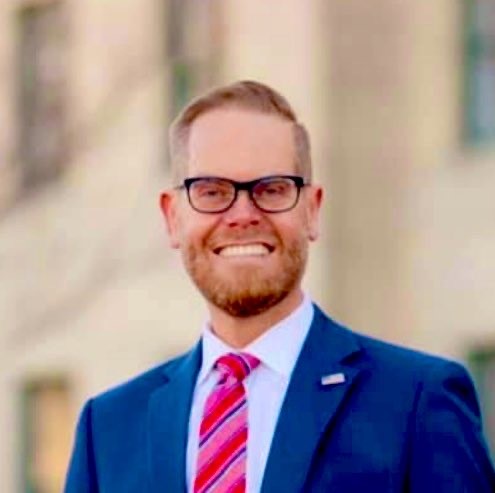By Representative Jeff Currey (D)
State Representative 11th Assembly District
Although the Connecticut General Assembly’s LGBTQ+ Caucus is small (Hey Rep. Allie Brennan!), we have proven to be mighty, again and again.
One may infer that the caucus was unofficially formed in 1991 when State Representative Joseph S. Grabarz Jr., a Bridgeport Democrat and friend, publicly announced himself to be gay, making him Connecticut’s first openly gay lawmaker. Garbarz’s announcement coincided with the Connecticut General Assembly’s passage of legislation prohibiting discrimination against LGBTQ+ individuals. After 18 years of failed attempts, on May 1, 1991, the Nutmeg State became the fourth state in the country to enact these protections, following Wisconsin, Massachusetts, and Hawaii. Legislative leaders acknowledged the shift in social attitudes in debating this groundbreaking bill from LGBTQ+ individuals’ “worthiness” of basic human rights to the harm discrimination in any form has on society.

While the bill wasn’t perfect—because, well, no bill is—and though we continue the work even today, this law began laying the rainbow bricks in Connecticut’s foundation to advance human rights both socially and legislatively. Our state’s residents’ and lawmakers’ perspectives on LGBTQ+ issues continue to evolve, becoming increasingly more accepting and understanding and in turn, more committed to affirming and acknowledging our community and safeguarding our rights.
Today, the legislature’s LGBTQ+ Caucus is 50 percent larger than it was 20 years ago. While that may sound like a win; in real numbers, with State Representative Raghib Allie-Brennan and me serving as its only openly gay members, it’s grown from one person to two. Over the last eight years, I’ve had the privilege of helping to lead the efforts that have continued to build the LGBTQ+ Caucus’ evolving voice, growing louder and more powerful with every election cycle, but we are still only the beginning.
When it comes to safeguarding basic human rights, Connecticut has broken its steady habits to become more welcoming and safer for LGBTQ+ folks, no matter their age, socioeconomic situation, or family makeup. In 2017, Connecticut banned the practice of Conversion Therapy. In 2018, the state enacted a law to ensure the fair treatment of trans individuals who are incarcerated, enabling inmates whose gender identity differs from their assigned sex at birth to be treated in a manner that is consistent with their gender identity. In 2019, the governor signed legislation that ended the use of Gay and Transgender Panic Defense in criminal proceedings, which historically has been used to justify violence against LGBTQ+ individuals. We also made significant strides that year to expand access to health care. The biennial state budget act established the country’s first statutorily created LGBTQ Health and Human Services Network to make recommendations about how Connecticut can improve the delivery of health and human services for this community, both young and seasoned. We also enacted a law that enables minors at risk of exposure to the human immunodeficiency virus (HIV) to access preventative and prophylactic (PrEP) interventions without parental or guardian consent.
During the 2021 legislative session, the caucus, which then included former state Senator Alex Kasser, our little caucus of three successfully shepherded the historical modernization of the Connecticut Parentage Act (CPA) through the legislative process, ensuring all CT children—regardless of the marital status, gender, or sexual orientation of their parents—have equal access to the security of a legal parent-child relationship.
The CPA bill wasn’t the only LGBTQ+-focused bill Governor Lamont signed in 2021. He also signed legislation to expand the definition of “Veteran” to allow individuals who were separated from military service under the discriminatory “Don’t Ask, Don’t Tell” policy to qualify for state veterans’ benefits, prohibit life insurance discrimination based on someone’s sexual orientation or gender identity, and include LGBTQ and SOGIE studies in a model curriculum to be made available for grades K-8.
These were milestones for the Constitution State, but when we look at 2021 nationwide, it’s clear Connecticut was among the outliers. More than 250 bill proposals were introduced across the United States with the intent to erode protections for the LGBTQ+ community with a vengeful emphasis on our trans friends. That year was deemed to be among the worst years for LGBTQ+ legislation. In light of recent events in Texas and signing of Florida’s “Don’t Say Gay” bill, 2022 isn’t looking any better. But we will stand our ground here in CT to ensure our kids, our residents, and our rights are protected.
As I reflect on our history, especially the past several years, I’m proud of how far our state has come and continues to lead by example. We should not have to fight for basic human rights, but every year we do, and this work would not happen if we didn’t have allies and accomplices inside and outside of our community. And it is a true privilege to have so many on both sides of the aisle, within the General Assembly…and it makes our caucus of two mighty.
So long as violence in any form exists against the LGBTQ+ community and other marginalized groups, our work will not be done. Like the work of the 1991 General Assembly, our work yesterday, today, and tomorrow will set the foundation for the generations that come after us, who will bring it further than we could ever imagine.









More Stories
Dancing in Hard Times
Breaking Access Barriers: Connecticut’s Bold New Step Toward Mental Health Parity
Three Gay Guys Talking Cars